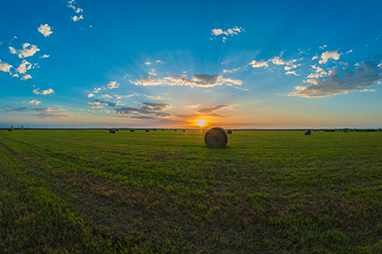Fall Alfalfa Planting
Jul 05, 2021

By Joey Kuehler, Sales Manager & Agronomist - Ulysses
The best time to plant alfalfa is about to roll around. Although spring planting is not uncommon, alfalfa tends to respond with higher production when planted mid-August to mid-September. Planting within this time frame helps to ensure good fall growth. Ideally, we like to see at least 3-5 trifoliates of growth before the first frost, and that typically takes approximately 6-7 weeks from germination. This helps ensure that sufficient root reserves are stored to allow the seedlings to survive the winter dormant period.
Alfalfa seed is expensive, and being a perennial crop, it’s also a long term investment, so we need to ensure that we do everything we can to protect that investment and achieve a good stand. The following are some points to consider:
The best time to plant alfalfa is about to roll around. Although spring planting is not uncommon, alfalfa tends to respond with higher production when planted mid-August to mid-September. Planting within this time frame helps to ensure good fall growth. Ideally, we like to see at least 3-5 trifoliates of growth before the first frost, and that typically takes approximately 6-7 weeks from germination. This helps ensure that sufficient root reserves are stored to allow the seedlings to survive the winter dormant period.
Alfalfa seed is expensive, and being a perennial crop, it’s also a long term investment, so we need to ensure that we do everything we can to protect that investment and achieve a good stand. The following are some points to consider:
- Check spray records for herbicide carryover that could potentially damage the stand.
- Pull soil samples and apply the needed nutrients to get the crop off to a good start. Alfalfa is a heavy user of Phosphorus & Potassium, so any needed applications need to be applied prior to seeding.
- Prepare a firm seedbed. Alfalfa seed is small, so it needs good contact with the soil. Starting with a firm, smooth seedbed will also help to get a smooth, even cut in the early years of the life of the stand.
- Plant 15-20 lbs of an adapted, inoculated seed variety.
- Limit seed depth to 1/4-1/2inch.
- Don’t reseed into old stands. Alfalfa plants produce a toxin that inhibits establishment & survival of new seedlings.